BMW iX vs Mercedes EQB - Differences and prices compared
Compare performance (659 HP vs 292 HP), boot space and price (71600 £ vs 45900 £) at a glance. Find out which car is the better choice for you – BMW iX or Mercedes EQB?
Costs and Efficiency:
Price and efficiency are key factors when choosing a car – and this is often where the real differences emerge.
Mercedes EQB has a decisively advantage in terms of price – it starts at 45900 £, while the BMW iX costs 71600 £. That’s a price difference of around 25702 £.
In terms of energy consumption, the advantage goes to the Mercedes EQB: with 15.20 kWh per 100 km, it’s somewhat more efficient than the BMW iX with 17.80 kWh. That’s a difference of about 2.60 kWh.
As for range, the BMW iX performs evident better – achieving up to 701 km, about 166 km more than the Mercedes EQB.
Engine and Performance:
Under the bonnet, it becomes clear which model is tuned for sportiness and which one takes the lead when you hit the accelerator.
When it comes to engine power, the BMW iX has a clearly edge – offering 659 HP compared to 292 HP. That’s roughly 367 HP more horsepower.
In acceleration from 0 to 100 km/h, the BMW iX is convincingly quicker – completing the sprint in 3.80 s, while the Mercedes EQB takes 6.20 s. That’s about 2.40 s faster.
In terms of top speed, the BMW iX performs evident better – reaching 250 km/h, while the Mercedes EQB tops out at 160 km/h. The difference is around 90 km/h.
There’s also a difference in torque: BMW iX pulls decisively stronger with 1015 Nm compared to 520 Nm. That’s about 495 Nm difference.
Space and Everyday Use:
Cabin size, boot volume and payload all play a role in everyday practicality. Here, comfort and flexibility make the difference.
Both vehicles offer seating for 5 people.
In curb weight, Mercedes EQB is to a small extent lighter – 2105 kg compared to 2525 kg. The difference is around 420 kg.
In terms of boot space, the BMW iX offers hardly perceptible more room – 500 L compared to 495 L. That’s a difference of about 5 L.
In maximum load capacity, the BMW iX performs minimal better – up to 1750 L, which is about 40 L more than the Mercedes EQB.
When it comes to payload, BMW iX clearly perceptible takes the win – 575 kg compared to 435 kg. That’s a difference of about 140 kg.
Who wins the race?
The BMW iX proves to be outperforms in nearly all aspects and therefore becomes our DriveDuel Champion!
BMW iX is the better all-rounder in this comparison.
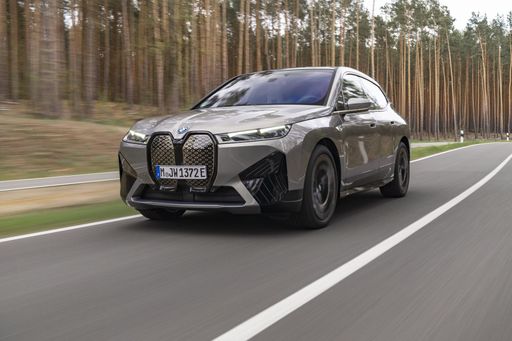
BMW iX
Costs and Consumption
View detailed analysis
Engine and Performance
View detailed analysis
Dimensions and Body
View detailed analysis
BMW iX
The BMW iX arrives like a tech-rich luxury SUV that refuses to shout, offering a serene yet authoritative road presence that suits both city commutes and long-distance cruising. Inside, its minimalist cabin wraps high-quality materials and clever interfaces around a driver-focused layout, making it feel more like a forward-thinking lounge than just another electric appliance — and yes, it still delivers the dynamic driving character you'd expect from a BMW.
details
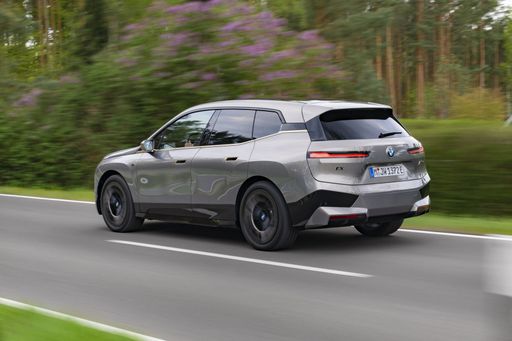
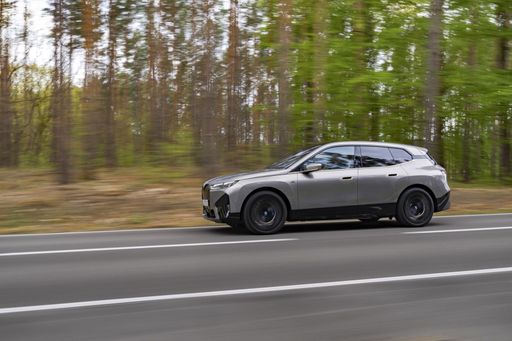
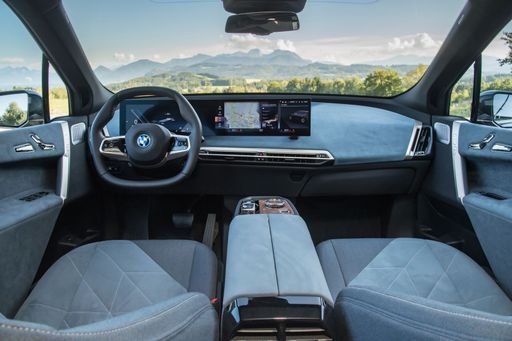
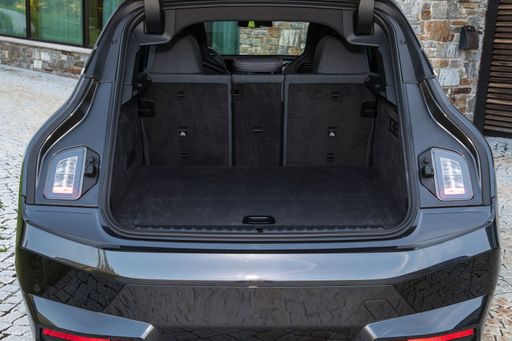
Mercedes EQB
The Mercedes EQB is an electric compact SUV that dresses Mercedes' premium feel in practical clothing, with flexible seating and a serene, composed ride that turns everyday errands into a small luxury. It won't thrill the enthusiast, but for buyers who want a smart, spacious and well-made EV with tasteful tech and real-world usability, the EQB is a sensible, slightly buttoned-up choice that impresses without shouting.
details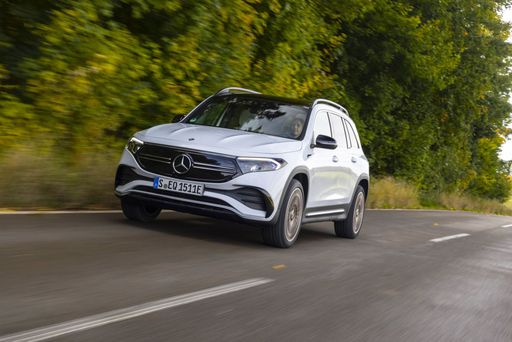
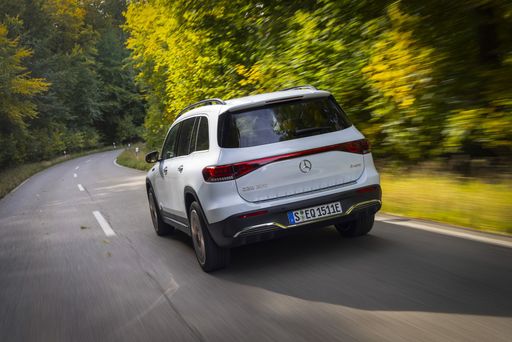
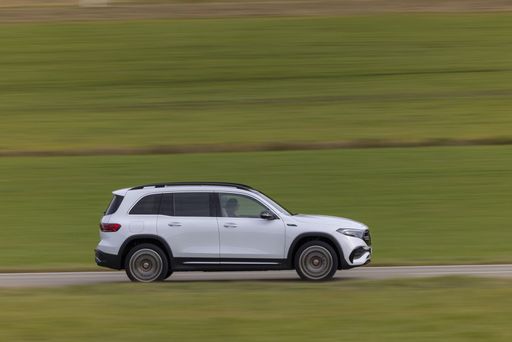
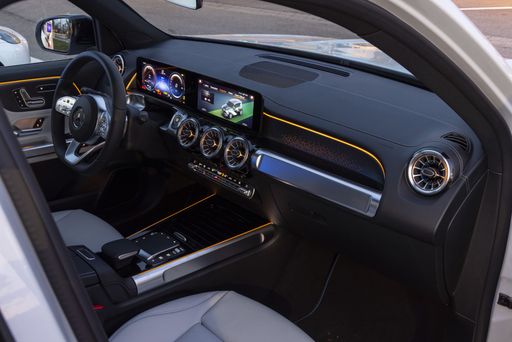
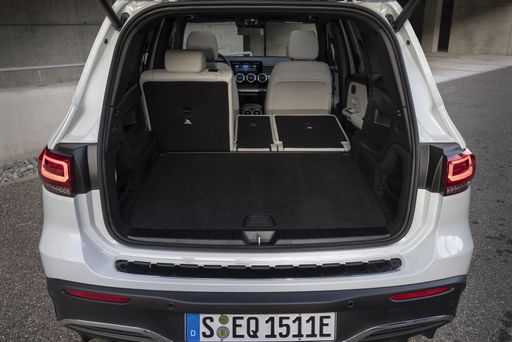
Costs and Consumption |
|
|---|---|
|
Price
71600 - 107100 £
|
Price
45900 - 58900 £
|
|
Consumption L/100km
-
|
Consumption L/100km
-
|
|
Consumption kWh/100km
17.8 - 20.6 kWh
|
Consumption kWh/100km
15.2 - 17.2 kWh
|
|
Electric Range
600 - 701 km
|
Electric Range
468 - 535 km
|
|
Battery Capacity
96 - 109.6 kWh
|
Battery Capacity
70.50 kWh
|
|
co2
0 g/km
|
co2
0 g/km
|
|
Fuel tank capacity
-
|
Fuel tank capacity
-
|
Dimensions and Body |
|
|---|---|
|
Body Type
SUV
|
Body Type
SUV
|
|
Seats
5
|
Seats
5
|
|
Doors
5
|
Doors
5
|
|
Curb weight
2525 - 2655 kg
|
Curb weight
2105 - 2170 kg
|
|
Trunk capacity
500 L
|
Trunk capacity
495 L
|
|
Length
4965 mm
|
Length
4684 mm
|
|
Width
1970 mm
|
Width
1834 mm
|
|
Height
1688 - 1695 mm
|
Height
1654 - 1689 mm
|
|
Max trunk capacity
1750 L
|
Max trunk capacity
1710 L
|
|
Payload
505 - 575 kg
|
Payload
435 kg
|
Engine and Performance |
|
|---|---|
|
Engine Type
Electric
|
Engine Type
Electric
|
|
Transmission
Automatic
|
Transmission
Automatic
|
|
Transmission Detail
Reduction Gearbox
|
Transmission Detail
Reduction Gearbox
|
|
Drive Type
All-Wheel Drive
|
Drive Type
Front-Wheel Drive, All-Wheel Drive
|
|
Power HP
408 - 659 HP
|
Power HP
190 - 292 HP
|
|
Acceleration 0-100km/h
3.8 - 5.1 s
|
Acceleration 0-100km/h
6.2 - 8.9 s
|
|
Max Speed
200 - 250 km/h
|
Max Speed
160 km/h
|
|
Torque
700 - 1015 Nm
|
Torque
385 - 520 Nm
|
|
Number of Cylinders
-
|
Number of Cylinders
-
|
|
Power kW
300 - 485 kW
|
Power kW
140 - 215 kW
|
|
Engine capacity
-
|
Engine capacity
-
|
General |
|
|---|---|
|
Model Year
2025
|
Model Year
2024 - 2025
|
|
CO2 Efficiency Class
A
|
CO2 Efficiency Class
A
|
|
Brand
BMW
|
Brand
Mercedes-Benz
|
Is the BMW iX offered with different drivetrains?
The BMW iX is offered with All-Wheel Drive.
The prices and data displayed are estimates based on German list prices and may vary by country. This information is not legally binding.




